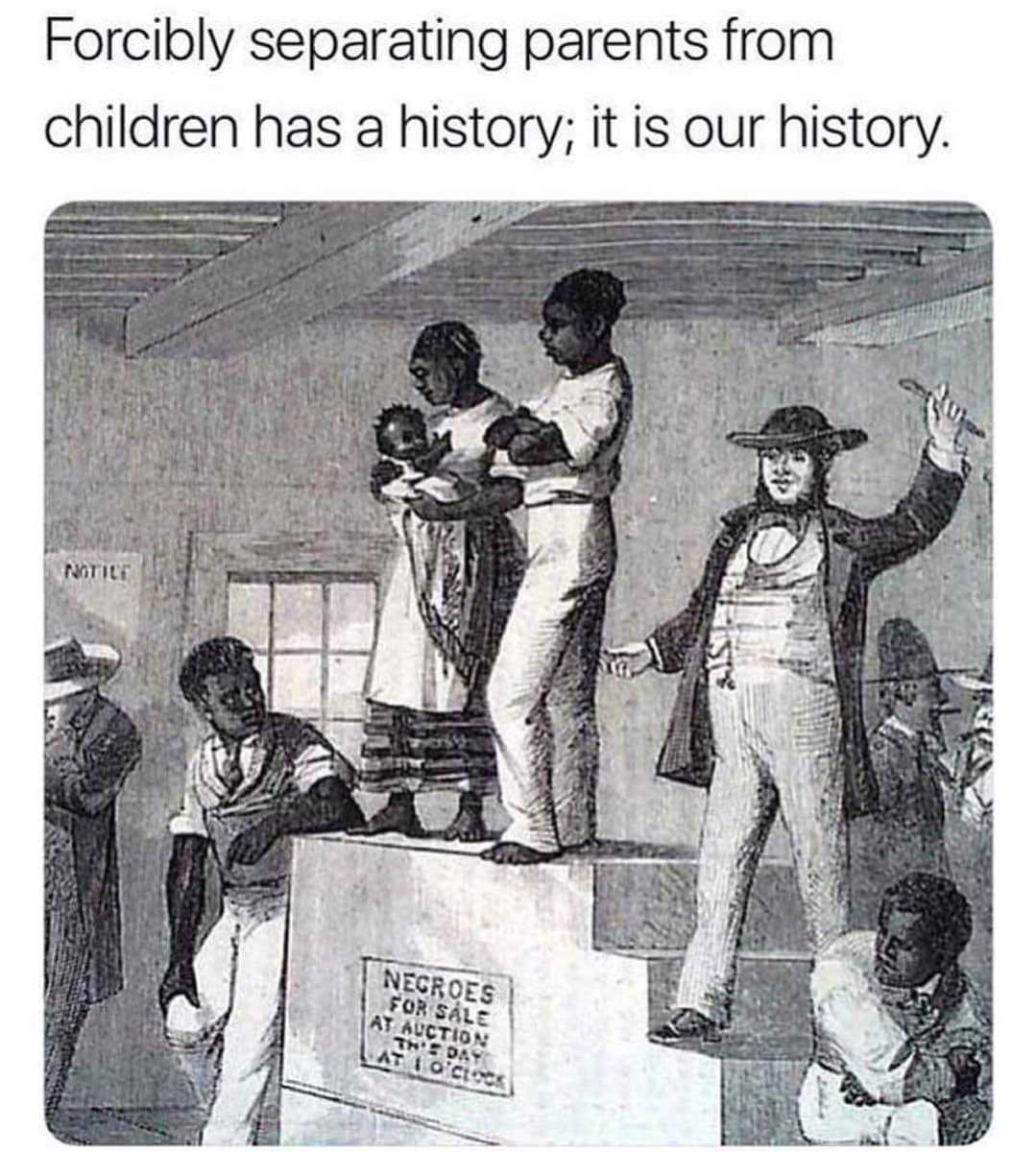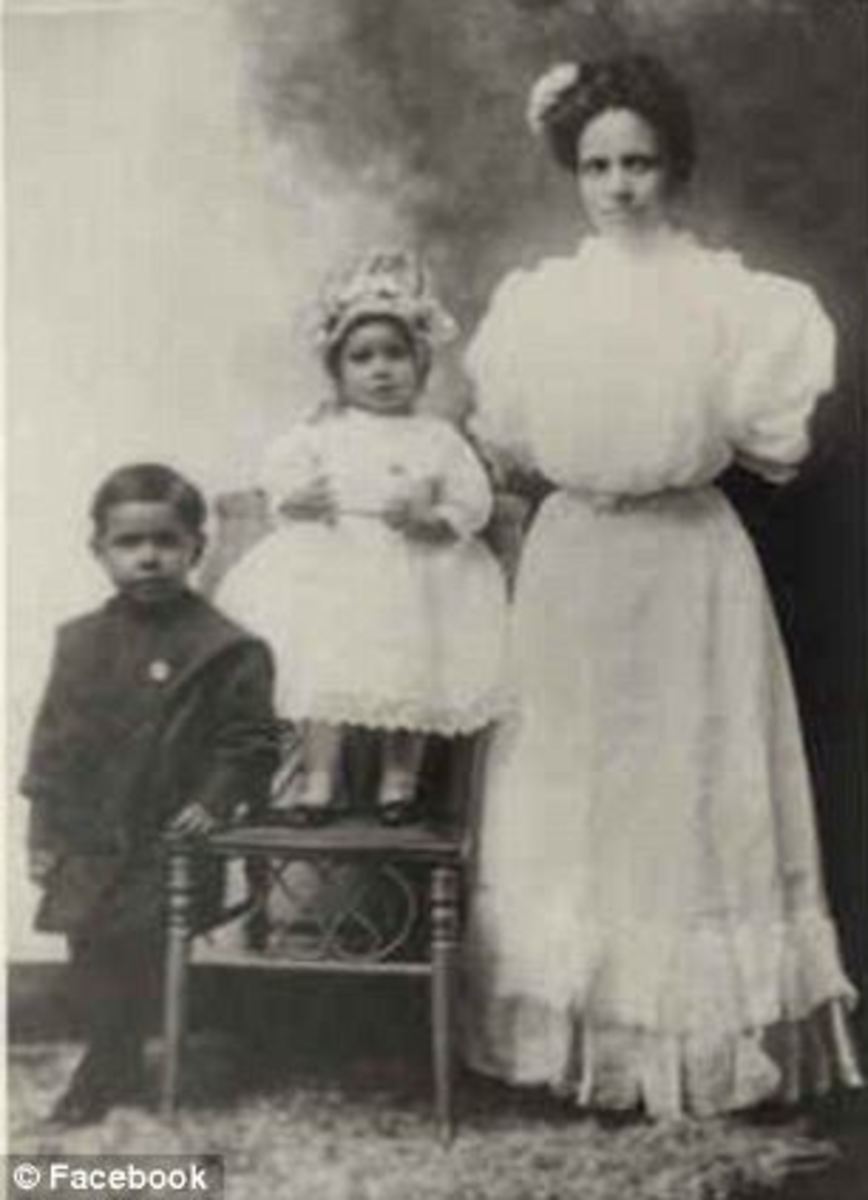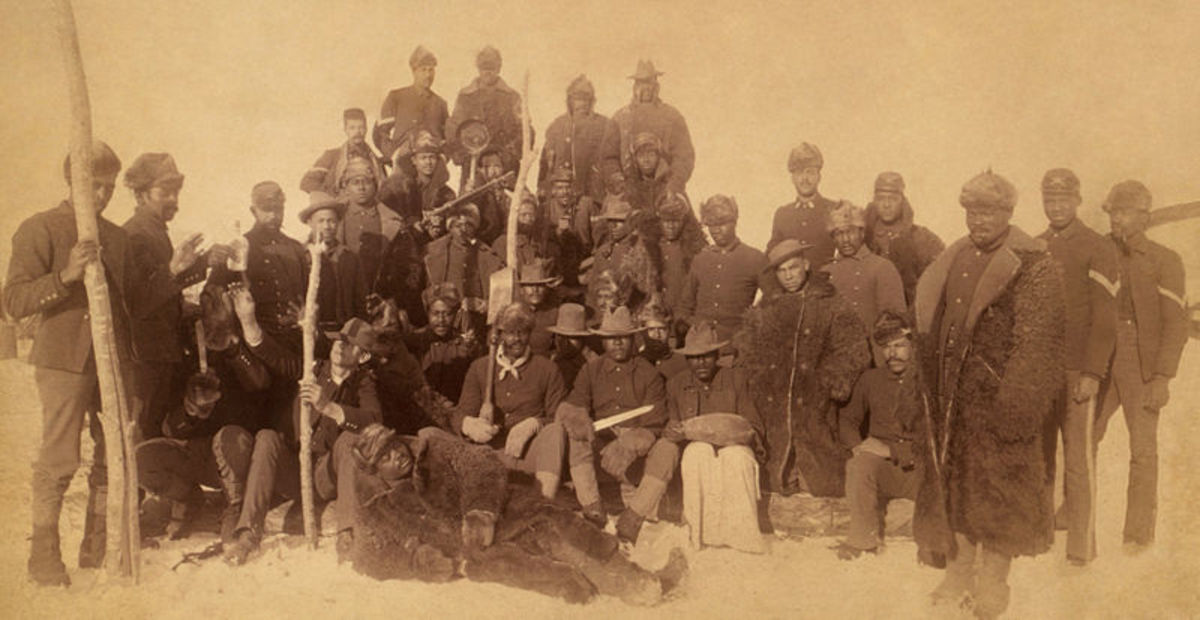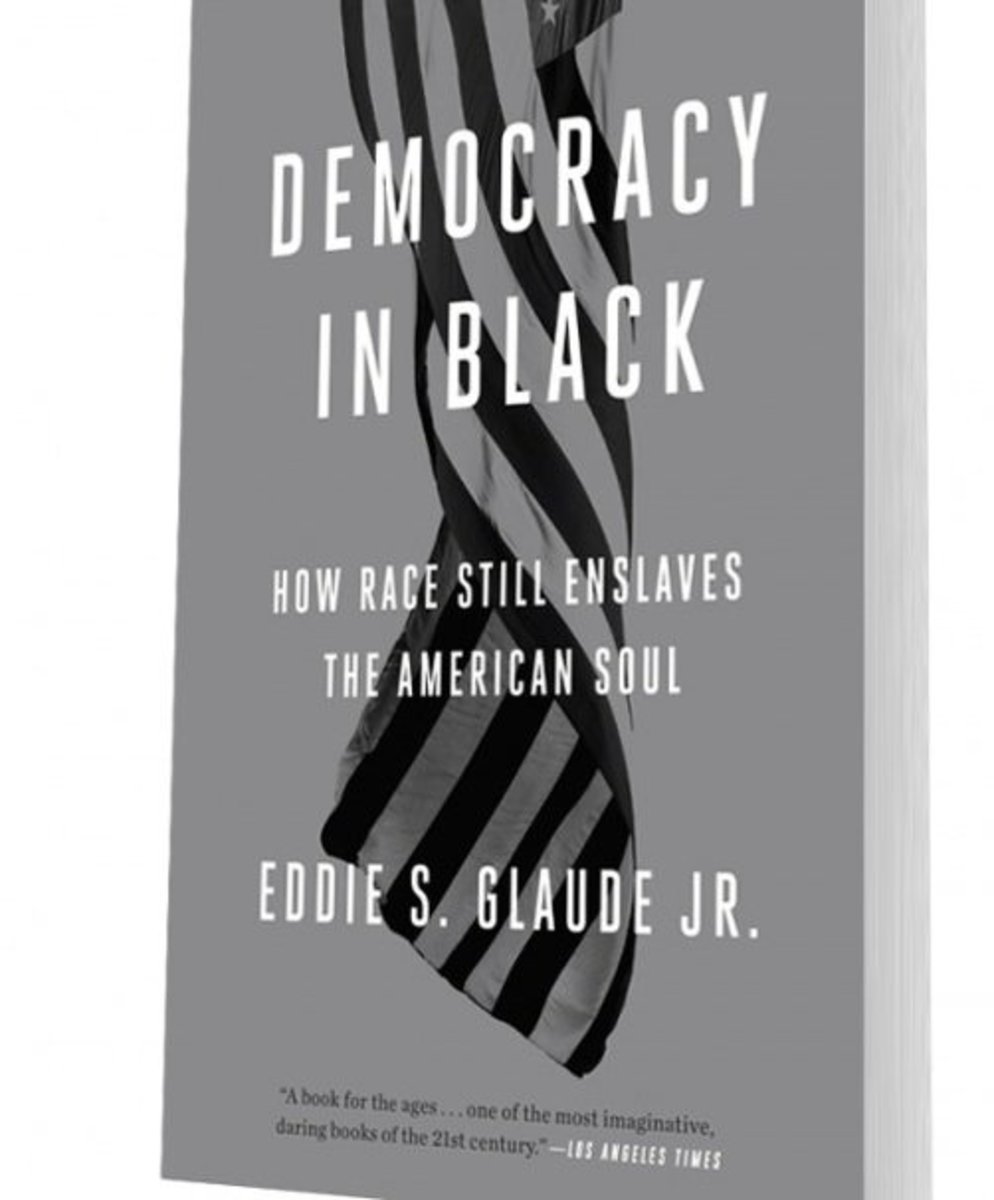Historical Facts About Racism in America and My Theory of the Root Cause of Racism!

There's no doubt that racism still exists in America, and it has been evident long before the birth of this country. Many may argue that racism has gotten better since the past, but has it really?
On the surface things may be better, such as laws to prevent it, but what about underneath the surface? What about underlying attitudes and roots of racism that can grow and flourish in a society.
I believe there's a core reason that goes deeper than the obvious differences between races. It goes even deeper than the subject of fear. It's this core reason that can revert things back to the way they once were in this country.
As an American, I'm no stranger to racism. There's been many incidents where it's reared it's ugly head. From the casual ignorant comment to the most blunt and hostile of actions, I've seen and heard it often.
What was the real reason behind racism? Was it really differences? Was it really fear?
Researching the subject and gathering historical facts about racism in America, I've found the cause of racism was not about our differences of appearance, our cultures, food or language. The root isn't fear or ignorance.
What I found is that the cause of racism: resources and the superiority over them. Resources? What does resources have to do with racism?
When we think of resources we mostly think of food, water, land, fossil fuels, etc. Nevertheless, resources can also apply in large extent to employment and the availability of opportunities. Better employment, better education, better health, better opportunities and better access to them are what we are all competing over.
This argument maybe hard to swallow. I know this theory will be highly debatable, but, of course, I will have historical facts of racism in America to back up my conclusion.
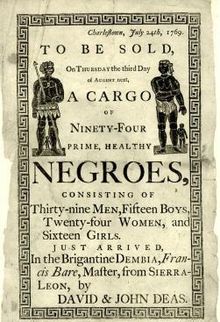
Slavery in America! the Real Reason Behind It!
If we're talking about facts about racism in America, it would make sense to start with attitudes towards the Native Americans in earlier days. However, we all know that racism towards Native Americans attributed to the desire and systematic taking of Indian land.
As a kid, it seemed that history classes forgot to mention that indentured servitude was present before slavery. Most of these indentured servants were white and from England.
Indentured servitude during colonial America was a contract of three to seven years of labor in exchange for transportation, food, clothing, lodging and other necessities. Because employment in England and Europe was dismal at the time and farmers and planters found it hard to hire free workers, the practice of indentured servitude prospered,
Being an indentured servant was hard. Weather conditions and conditions of the work environment were excruciating. The death rate was extremely high, and many did not live to the end of their contracts.
Many indentured servants were also treated miserably by their benefactors and quite a few also ran away. During the end of indentured servitude practices in the U.S., quite a few white indentured servants would run away with black slaves.
The economic climate changed in America, and the demand for skilled workers increased. Prices for obtaining and transporting indentured agricultural labor to the new world increased by nearly 60 percent throughout the 1680s in some colonial regions.
This was a problem. Fewer indentures arrived after 1775, and many Southern planters needed a free labor force to profit from. A resource was needed - free work!
Nevertheless, how you can get someone to do free work willingly when more whites from Europe refused to be indentured servants? You can't! The solution - enslave others.
Because tobacco and cotton was a major market at the time for both Americans and The British, The British empire became highly active in the trans-atlantic slave trade.
The trans-atlantic slave trade became a hugely profitable economic market for England, as well as for Southern plantation owners. Many African tribes sold captured enemies to Slave traders at the many outposts that were set up in Africa.
But the real question is how does a people of Christian morality partake in such an act against humanity? How do you enslave another group of people just to fill a void in resources and profit from when every religion around the world says it's wrong? It's easier than you think, and we still practice it today for the exact same reasons I'm arguing about in this hub.
The Act of Demonizing!
Thou shall not steal from thy neighbor! How did American Christians get around this sin with the Native Americans? They didn't make them their neighbors.
It's apparent that whites in colonial America were competing with resources with the Native Americans during the time. After all, more lands means more hunting grounds and resources to profit off of.
Colonial whites wanted access to these resources that Native Americans had superiority over. In time, whites would want superiority over all the resources that Native Americans had.
Demonizing a group of people is an age old tactic to rally a group of people against another. Characterizing them as savages, heathens, and un-Godly is how you make them a threat to your way of life or your potential way of life.
Seeing another as lesser or as sub-human justifies any trespasses or injustices dealt upon them within the minds of the offenders. Differences are amplified and then a fear that this group is a threat in some way is used as a weapon to cultivate racist attitudes.
Believe it or not, black slaves had power over southern whites, and southern white farmers and planters knew this. That power was rebellion. A slave uprising was one of the biggest fears southern white planters and farmers had throughout slavery in the south.
This is the main reason why black slaves were so viciously brutalized and demoralized mentally and physically during slavery. It was to make sure they never thought of rebelling. To further make sure their free labor force would continually make them profits and sustain their access to various resources and way of life, the demoralization was cemented through many laws throughout the south.
But what about poor whites in the south who didn't own slaves? What was their reasoning for their racist attitudes?
It was the prospect of someday gaining access to the resources and opportunities that more prosperous southern whites had availability to. With freed black slaves that had the same rights as poor whites, the competition would greatly increase. I will further explain this in the upcoming sections about Irish racism in America and anti-Chinese sentiments.
We still use this demonizing tactic today. Communism - the insidious evil. Why did America launch such a huge anti communist campaign shortly after World War II? What was communism threatening our superiority over? Can we say world power?
In reality communism is just like having a different religious belief. However, we still demonize communist countries to this day for a very strategic reason. The same reason that some Christians use to demonize Muslims in this country.
It's the same strategy Hitler used against the Jews. It's the same reason whites used it with the Native Americans and blacks during early America. Dominance, and there's no better way to rally a group together than fear of losing or potentially gaining that dominance.
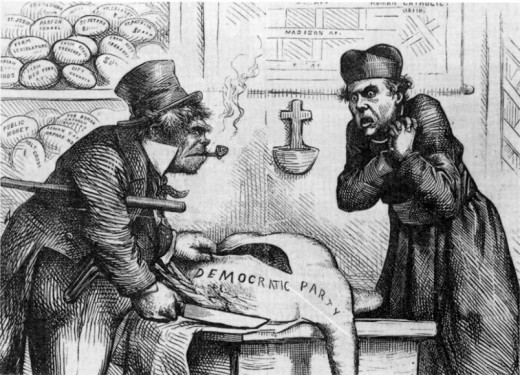
Irish Racism in America
To further my points and to establish that racism in America wasn't just subjected to people of darker skin tones, I'm going to talk about Anti-Irish sentiments in America. Many people forget that racism towards the Irish indeed happened in American history.
There's no better film that covered the subject than the Gangs of New York. I've written another hub that details the real events and racist attitudes towards the Irish in America that the Gangs of New York movie accurately depicts.
You can click the link to read about the history of the Gangs of New York, and what racial circumstances the Irish had to endure during the time.
During the huge Irish immigration during the Civil War, most in America were Protestant white men from English ancestry. What do you think the biggest resources the Nativists feared the influx of Irish infestation would steal?
That's right! The superiority over jobs! The other big threat was the Catholic ideas that threatened Nativists religious beliefs.
Irish immigrants were also dehumanized, often depicted as slovenly, hostile, drunks and characterized in drawings as beast like and unintelligent.
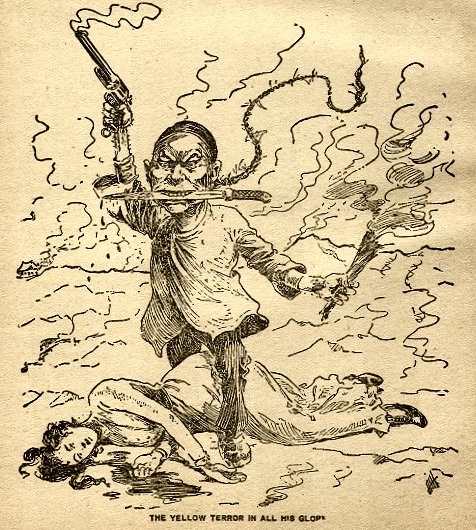
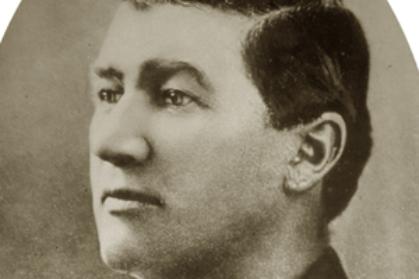
Anti-Chinese Sentiments in Early America
Believe it or not, the Chinese had been in America for quite a long time, and they were generally well-received at first. Americans called them "Celestials" before they were seen as a threat.
Ironically, while the Irish struggled against Irish racism in America, they also were huge perpetrators of racist attitudes towards others. The Irish deemed blacks and Italians as competition for jobs, and conflicts between both groups arose.
In the northern states, the Irish were definitely fearful of freed black slaves streaming over from the south and taking away jobs, taking away their opportunity and chance at a better life. They cultivated racist attitudes towards blacks much like poor white southerners did.
Aside from Italians and freed black slaves, the Irish during the 1800s were extremely threatened by the Chinese labor force. Many Chinese were regarded highly by their employers but often used as scapegoats to curb strikes and pay increases often demanded by white labor forces.
The Irish were the main force behind anti-Chinese sentiments in America. The man who lead anti-Chinese sentiments in America was Dennis Kearney. Born in Oakmount, County Cork, Ireland, in 1847. Kearney incited continual violence towards Chinese laborers.
Blaming the Chinese for stealing "white" jobs and "lowering" wages, Kearney was the main force that led whites to fear the Chinese and to demonize them. Jobs wasn't all they feared.
I've heard many guys, who see a woman of his own race with a man who isn't, snidely remark, "What? He can't get one of his own?" Chances are you've probably heard someone else say something similar as well.
In America, near the end of building of the railroads, this attitude was greatly felt among whites with the Chinese. White men began seeing the Chinese as men who would seduce, corrupt, rape, and even murder their women.
White men of the time saw white women as resources, namely property. They wrote laws forbidding both blacks and Chinese men to marry white women.
Whenever I hear some guy saying that remark, "What he can't get one of his own kind?" I think of his frame of mind as having his superiority over his resource threatened. One opportunity of dating a woman of his own kind lost.
Dennis Kearney was quite popular during his reign as the biggest proponent of anti-Chinese sentiments during the 1870's and 80s. His attacks and rhetoric led the Chinese to be kicked out of the labor force. His most famous saying was, "The Chinese must go!"
Kearney's biggest legacy were the laws against the Chinese that he helped to pass, most notably the Chinese Exclusion Act of 1882.
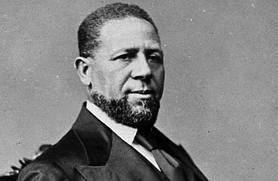
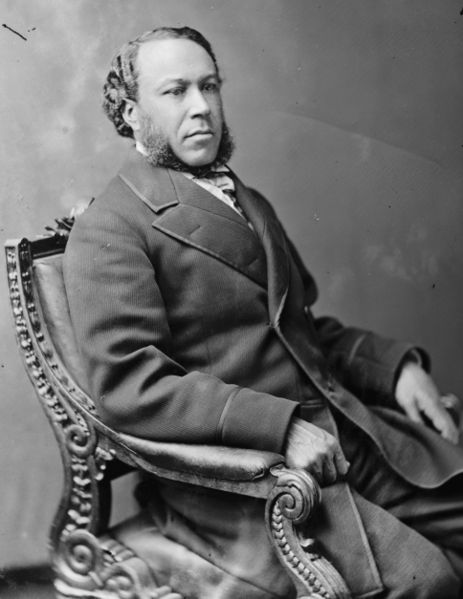
Disenfranchisement of Blacks After the Civil War!
If there is any historical facts about racism in America that best illustrates the root of racism is the superiority over resources, it has to be the disenfranchisement of African Americans after the Compromise of 1877.
After the Civil War, amendments to the Constitution was made, as most know well. The Thirteenth Amendment abolished slavery, and The Fourteenth Amendment made all people born or naturalized in the United States citizens.
The Fifteenth Amendment forbade the denial or abridgment of the right to vote on account of race, color, or previous condition of servitude, and gave Congress the power to enforce the law by appropriate legislation. Blacks in America gained the right to vote and to serve in the military.
In 1866, Congress passed the Reconstruction act. This dissolved all governments in the former Confederate states with the exception of Tennessee, divided the South into five military districts, and required former Confederate states to ratify their constitutions concerning citizenship rights to blacks.
Refusal of these demands meant the states would forfeit their representation in Congress. Blacks now had the right to vote across all southern states.
And they did! Blacks came in droves to the polls, and in many southern states, blacks were the majority of the population. What do you think this caused?
On February 25, 1870, Hiram Rhodes Revels was elected the first black member of the Senate, becoming also the first black member of the Congress. In 1870, Joseph Rainey of South Carolina was elected to the US House of Representatives, becoming the first directly elected black member of Congress.
More black freedmen were also being elected to national office in Alabama, Florida, Georgia, Louisiana, Mississippi, North Carolina and Virginia. With blacks entering positions of power, violence at elections in the southern states by whites increased.
The Compromise of 1877, redeemed the south. It was a bargain between a disputed Presidential election between Democratic Samuel J. Tilden and Republican Rutherford B. Hayes.
With the Compromise, Democrats conceded the election to Hayes if the North promised to never interfere with southern affairs.This would lead to disastrous consequences for blacks in the south.
Under the compromise, white Democrats regained control of Southern legislatures and restricted the rights of blacks to vote. Jim Crow laws were passed that segregated blacks in virtually all aspects of daily life.
Southern whites would make sure that their superiority would not be threatened for almost seven decades after. You can read more about the disenfranchisement of blacks in America by visiting the link.
My Conclusions on the Real Roots of Racism!
You may not agree with my view on the real root of racism. You still may believe it has everything to do with skin color, physical features, language, or whatever. I believe racial differences is just ammunition to demonize.
As I've illustrated from my examples and facts about racism in America, many groups wouldn't even have a problem with each other if there wasn't something they were competing for or a resource that was needed from them or filled by them.
Superiority equals power. Power gives one access to more opportunity and resources.
Demonizing is just the ammunition needed to justify keeping or achieving superiority over another or something. Demonizing justifies one groups' offenses over another.
In recent years, racist attitudes towards Latinos has become even stronger and more evident in America. One of the outcries against them, but not all, has to do with jobs.
It also seems that anti-Chinese sentiments have never really left and they're once again being blamed for the lack of jobs and our poor economical state. If you take a closer look at history and attitudes today, you'll know that history repeats itself.
Take the term "reverse racism." What does this term even imply? I thought racism was just racism whether you're the majority or minority. Perhaps, it's implying the allowance of who deserves the superiority to be racist, as well as protection from racism?
Ideally, it shouldn't even be a term. It should just be called racism. Subconsciously, however, the term may have a lot more underlying tones than Americans truly realize.
The root of racism goes much deeper than just skin color.
What do you think about this subject?
© 2012 Vic

